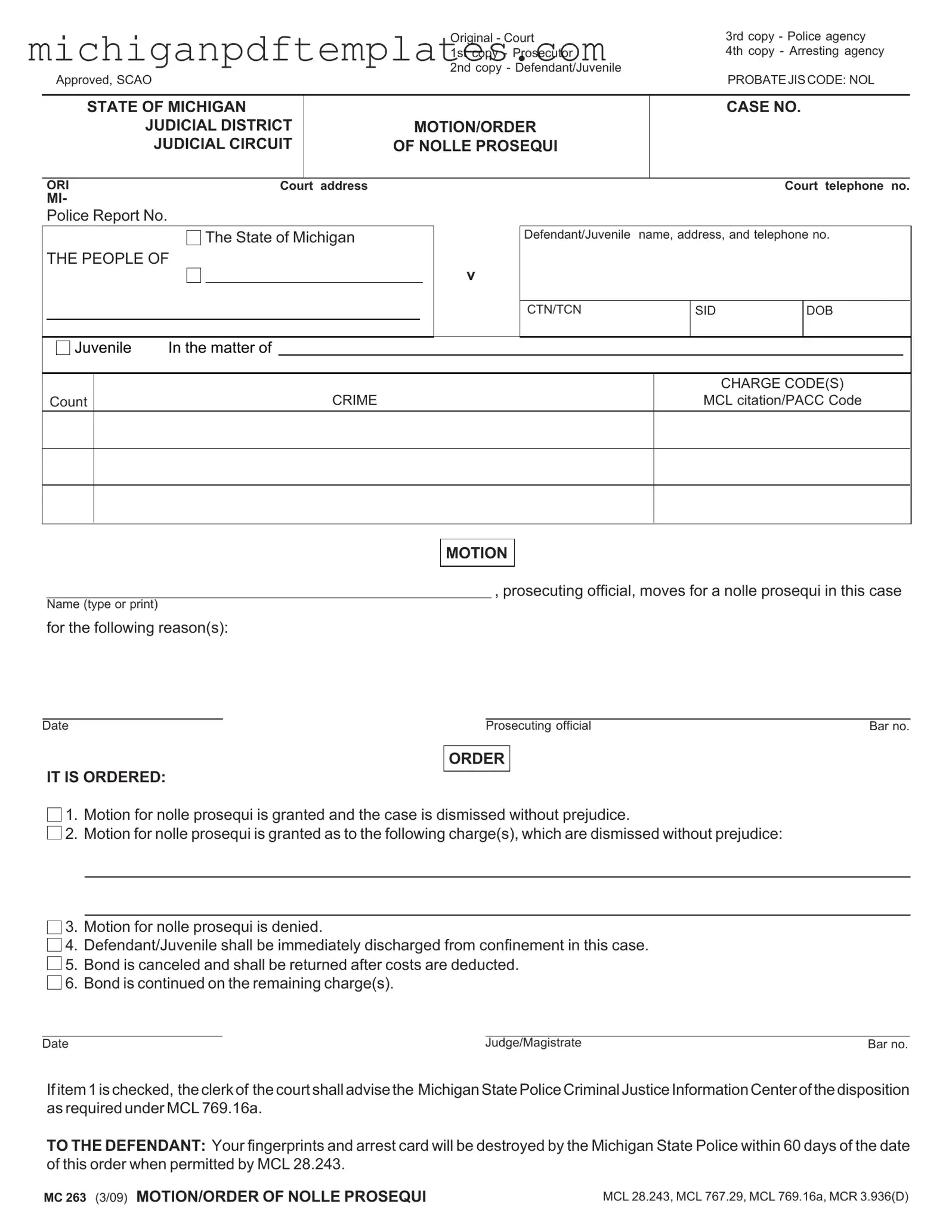Fill in Your Michigan Mc 263 Form
The Michigan MC 263 form, known as the Motion/Order of Nolle Prosequi, is a legal document used in the state of Michigan to dismiss criminal charges without prejudice. This form allows a prosecuting official to request that the court dismiss a case, either entirely or for specific charges, while providing guidelines for the defendant's discharge and the handling of bond. For those needing to fill out this important document, click the button below.
Get Your Form Now

Fill in Your Michigan Mc 263 Form
Get Your Form Now

Get Your Form Now
or
▼ PDF Form
Finish this form quickly and move on
Fill in and complete Michigan Mc 263 online quickly.